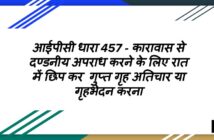We always take things for granted and do not value people. One of the most devalued people is public servants. The government has appointed public servants to help us, protect and guide us on various queries and complaints. Yet people take out their frustration on them. There are instances where public servants are beaten and assaulted by the public while they discharge their duty so that they do not perform their work. Over the years, the number of cases related to an assault on public servants has increased.
In this article, we will discuss what Section 353 of IPC, its essential ingredients is, what is assault, what is criminal force, is Section 353 of IPC bailable, punishment under Section 353 of IPC, how to get bail for section 353 of IPC, how to compromise Section 353 of IPC and amendments. To Section 353 IPC in Hindi click here.
What is Section 353 of IPC?
If a person uses assault or criminal force against a public servant in execution of his duty or function as a public servant or uses assault or criminal force with the intent to deter or prevent such public servant to discharge his duty or uses assault or criminal force in consequence of any act done or attempted to be done by the public servant then such person will be liable under Section 353 of IPC.
Example:
Suppose a person beats up traffic police who questions him about rash driving and non-compliance with traffic rules. In that case, such a person will be liable under Section 353 of IPC.
Suppose a passenger argues with the ticket collector and assaults him. In that case, such a person will be liable under Section 353 of IPC.
Essential ingredients of Section 353 of IPC
There should be the following essential ingredients to make a person liable under Section 353 of IPC.
- There should be the use of assault or criminal force against a public servant;
- The assault or force should be used during the execution of his duty;
- There should be an intention to prevent, deter, stop or interfere such public servant from discharging his duty;
- Using force or assault on the public servant in consequences of any act done by the public servant in execution of his duty; or
- Using force or assault can also be done against the public servant as a consequence of any act attempted to be done by the public servant in the execution of his duty.
Having looked into the essential ingredients of Section 353 of IPC, let us now understand the key ingredients of this section called “public servant”, “assault,” and “criminal force”.
Who is a public servant?
This section talks about using criminal force and assault against a public servant; now, who is a public servant?
A public servant is a person who the government employs. Some of the public servants are police officers, court officers, arbitrators, and other competent authorities, as stated under Section 21 of IPC.
What is assault?
An assault is defined under Section 351 of IPC. It states that if a person makes a gesture or action or any preparation that shows the person intends to use criminal force against him, then such person is said to have committed an assault.
Example:
A loosens a dog’s muzzle to cause B to believe that A is likely to cause the dog to attack him. Here, A has committed an assault.
What is criminal force?
Criminal force is defined under Section 350 IPC. It states that if a person without the consent of another person, intentionally uses force to commit an offence or knows that he is likely to use force to cause any injury, fear or annoyance to another person, then such person is said to have used criminal force against that person.
Example:
A is riding a chariot. Z lashes the A’s horse so hard that it starts running fast. Here, Z has used force against A without his consent, intending or knowing that it is likely to cause A fear, injury, or annoyance. Therefore, Z is liable for using criminal force against A
Is section 353 IPC bailable?
Section 353 is a non-bailable, non-compoundable, and cognizable offence triable by any Magistrate.
Punishment under Section 353 IPC
Whoever assaults or uses criminal force to prevent a public servant from discharging his duty shall be punished with imprisonment of either a description (rigorous or straightforward) for a term up to 2 years or with a fine.
Amendment to Section 353 IPC
However, after the Indian Penal Code and the Code of Criminal Procedure (Maharashtra Amendment) Act, 2017, the punishment under Section 353 of IPC has been increased from “2 years” to “5 years”.
How to get bail for section 353?
Section 353 of IPC is a non-bailable offence. Therefore, bail can be granted only at the discretion of the Magistrate. The accused must make an application under Section 438 of Cr.P.C., where the officer in charge and the court is empowered to grant bail at its discretion. However, the accused can apply for anticipatory bail if an FIR has not been filed.
How do you compromise IPC 353?
Section 353 of IPC is a non-compoundable offence. However, the accused can make an application under Section 482 for quashing of an FIR or criminal proceeding.
Case Laws
Bhim Tudu Son of Ram Tudu Vs. The State of Jharkhand, 2021
In this case, the informant-cum-victim, during the discharge of his duty at GRPS, Sahibganj, was abused and assaulted by the Bhim Tudu (original petitioner) by fist blows. As a result, the informant had sustained several injuries.
The court had held that the accused (Bhim Tudu) had intended to cause injury to the informant to deter him from discharging his duty. Therefore, the court had upheld the order of the learned appellate court and convicted the accused under Section 353 of IPC.
Conclusion
If anyone assaults or uses criminal force against a public servant to prevent that person from performing his duty, such person will be liable under Section 353 of IPC. Under Section 353 of IPC, the offence is non-bailable, cognizable, and non-compoundable. Under Section 353 of IPC, the punishment is up to two years, a fine, or both. The sentence increased from 2 years to 5 years after the amendment. To read in Hindi click here.

